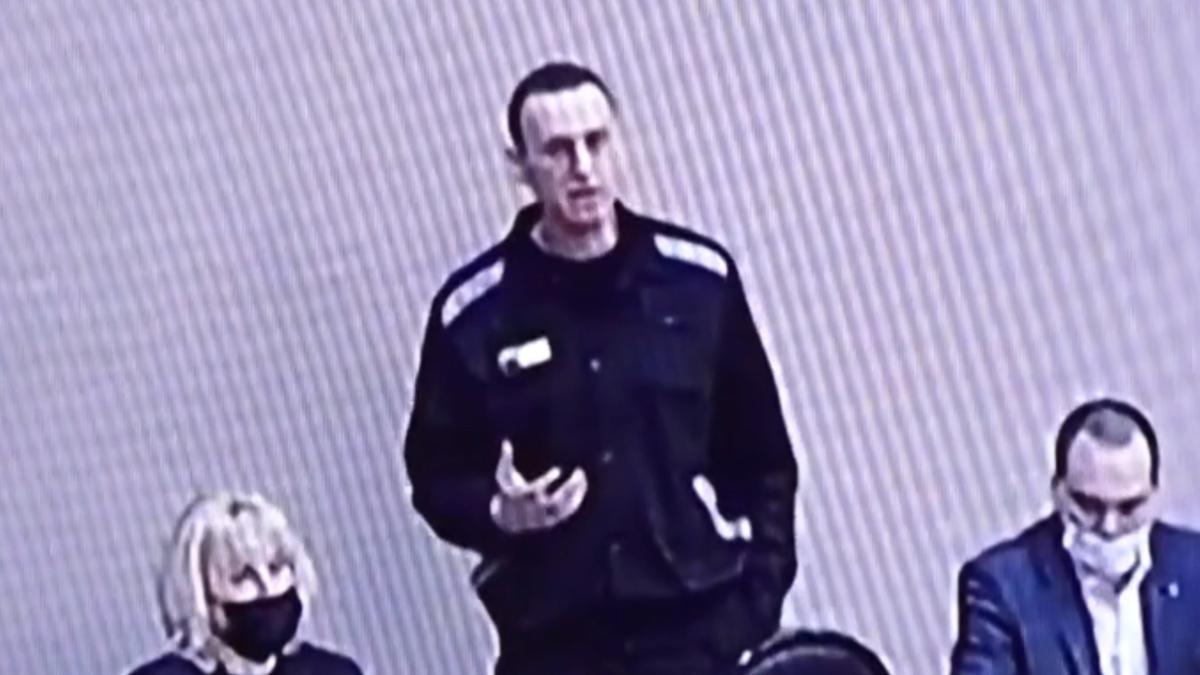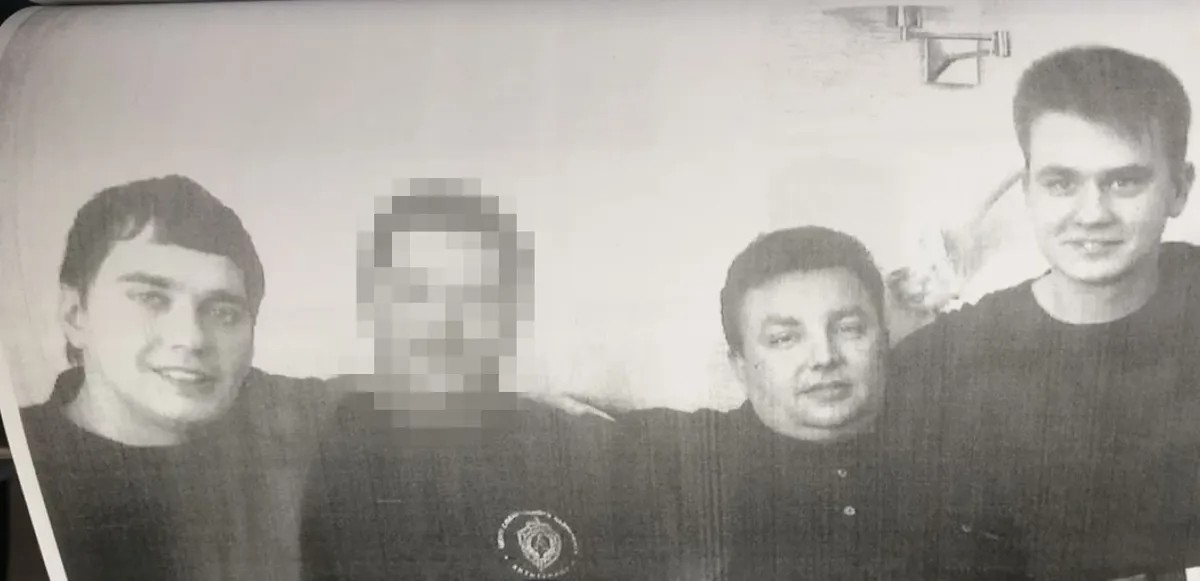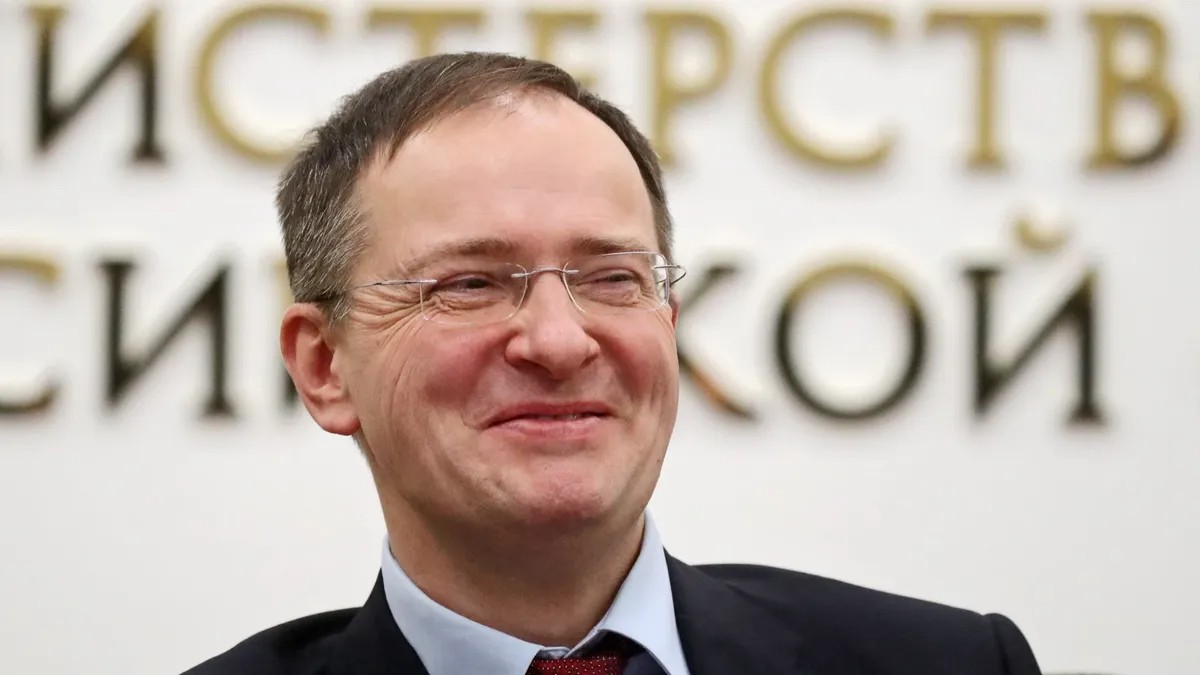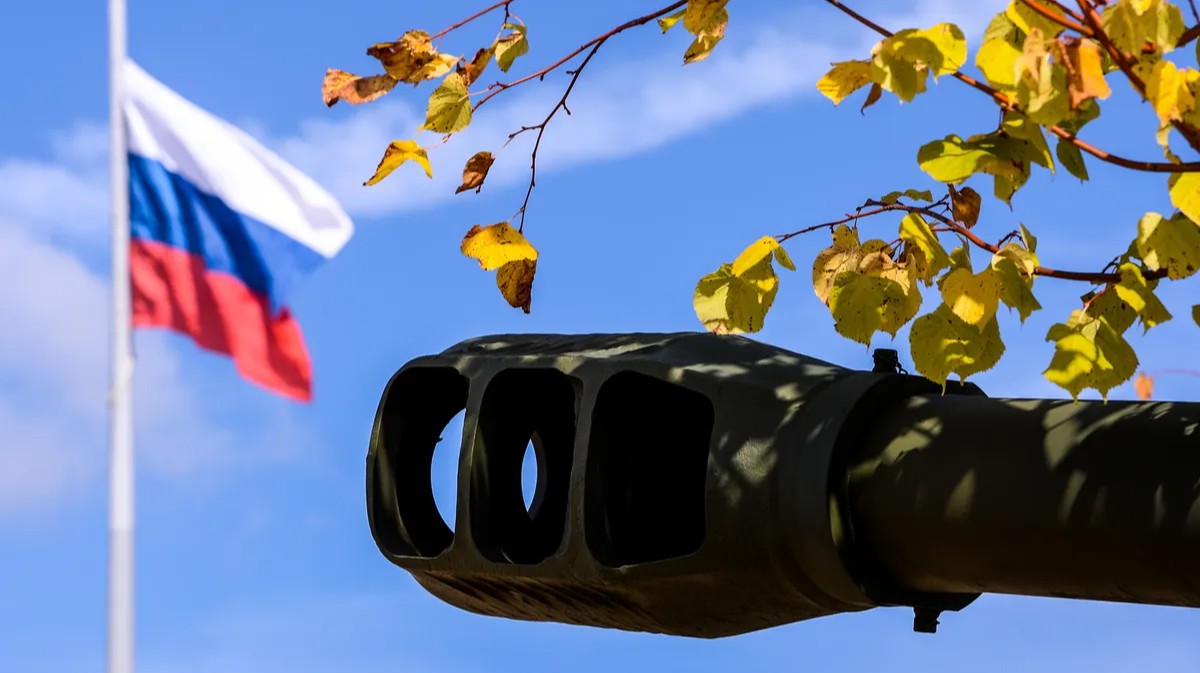Here what’s in store for you this week:
- ‘Leave us alone, motherf*ckers.’ As Russian troops invade Donbas, locals tell us how they feel about it. We also feature first reactions from inside Russia;
- We explain what you need to know about latest Navalny trial;
- We expose the racket of the FSB’s so-called “Banking Division”;
- Plus, We investigate the shady financing behind one of Russia’s key history rewriting initiatives;
Russia Invades… Again
We keep following closely the developments both in Russia and in Donbas as Russian troops officially invade Eastern Ukrainian statelets overnight.
THE STAKES ARE RISING. In a column published just hours before Putin’s declaration of war, our deputy editor-in-chief Andrei Lipskiy warned about dangerous escalation in the Russian crisis that drags it into the place where any outcome — no matter how bizarre or insane it sounds — is now possible. ‘The war of nerves conflict continues and might soon to culminate in a nervous breakdown. The stakes in this crazy poker are growing, the cards are hidden, the actions of the players are unpredictable, it is not clear where the reality is and where the bluff is. Everyone is waiting to see whether this soon becomes a real full-scale war, or will it blow over.”
UP UNTIL NOW KREMLIN HAS ALWAYS HAD AN OPTION TO POINT FINGERS AT UKRAINE FOR FAILED PEACE ATTEMPTS. NOT ANYMORE. Russian opposition politician and our collumnist Boris Vishnevskiy points to the collapse of Minsk Agreements as the last Kremlin’s formal resort at distancing itself from official war with Ukraine. Also, according to him, the move indicates a clear disconnect with social realities. Kremlin spokesman Dmitry Peskov stated that “our people feel great pain at what is happening in Donbas” yet, in a recent Levada Centre poll indicates, just 3% of Russians cited “Donbas” as something they were concerned about. The vast majority cited quality of life issues such as price rises, unemployment, and access to medicine.
‘LEAVE US ALONE, MOTHERF*CKERS.’ Our observer Yan Shekman has been on the phone all night talking to average Donbas residents. ‘When I called these people, I was sure they must be in panic. Turns out, the only thing that bothers them is the news from Russia. What will be decided there will determine how they will live and whether they will stay alive at all,’ Shekman writes. ‘In Donetsk, everything is as usual. There are a lot of people on the streets, shops are open. The military people are spotted too, but no more than usual. People keep making life plans, but they don’t yet include an emergency flight to Russia or joining the army. Both Kyiv and Moscow insist that Donbas faces another war, a nightmare, a catastrophe. But for Donbas, all the mentioned is just life as usual.’
ARE THERE MORE SOLDIERS ON THE STREETS? “I wouldn't say. It was many ten days ago, apparently, they were brought in, and now they are locked up in the barracks. They hung around the city for a bit and disappeared. When they go out, they behave quietly. This is not 2014, when people were kidnapped, tortured, homes were looted and cars were stolen. This just the regular army. You tell them: «They brought you again, damn it.» They turn away, pretending not to hear. We don't really like the military. We don't even want to sit next to them on public transport. Often they sit with the seat next to them remaining vacant,’ a Donestk teacher named Tatiana tells Shekman (we changed names of the interviewed to keep them safe.)
‘NO ONE FEELS THE THREAT OF WAR, THE THREAT OF MOBILIZATION IS MUCH MORE SCARY. Many men are afraid to go out into the street, because of reports of folks being kidnapped in forced conscription,’ says Dmitriy, an IT specialist from Donbas. ‘Almost everyone I know say they are staying. There is nowhere to go and nothing to do. We talked with my grandmother about the evacuation, but she is sick with covid and does not agree to leave. And we won’t leave the cat, it’s like throwing a child away. We stay, too.’
Navalny on Trial… Again
On February 15, Moscow’s Lefortovo Court of Moscow tried Alexei Navalny for allegedly embezzling donations from his Anti-Corruption Foundation. The 100 journalists allowed to cover the trial were given the choice between two less than great options: Either follow the proceedings from a separate building via a video broadcast with poor sound, or go to the main courtroom — without phones or equipment. Our correspondent Alina Danilina chose the latter option. In an unprecedented move, the trial was held in the same penal colony in the Vladimir region where he is serving his sentence for the Yves Rocher case. He faces up to 10 additional years in prison if found guilty.

Alexey Navalny during the trial
SETTING THE SCENE. The “courtroom” was actually the recreational hall in the colony where prisoners are taken to watch movies. The trial began 45 minutes late. At the start, only Navalny’s wife Yulia was present, but several journalists arrived later. The sound system was poor and they struggled to hear what was said. Navalny’s defence lawyers appealed to the judge to allow the journalists to use recording equipment given the large volume of evidence that would be presented. Unsurprisingly, the request was denied.
Svetlana Ushmodina transcribed Navalny’s opening speech. We share his most powerful quotes.
On the fraud allegations:
“There is not a single word [of evidence] that even one penny of this money came to me, that I or my colleagues appropriated a single penny for ourselves. There is something useful in this case. It is a global audit of everything that FBK did, which fully proves that we did absolutely everything right, we spent everything on the activities that we talked about — anti-corruption activities.”
On corruption:
“I don't like what's going on here, I hate what's going on here […] Putin builds a 150 billion rouble palace for himself, while a paramedic receives only 21 thousand a month […] I don't understand how there can be such poverty in a country that has been pumping oil and gas for 20 years. I rally those who do not like it either. I unite them into a party, unite them into a movement, and investigate who stole this paramedic's money […[ who stole your money.”
On United Russia:
“I organise people who do not like United Russia and Putin, who hate United Russia and Putin, who want to remove United Russia and Putin from power, because United Russia and Putin are robbing our country. This is an objective fact.”
On his future:
“I understand that this is not my first trial, I am not naive, the verdict will be guilty […] I insulted this dark lord of yours Putin, I not only survived, but also returned … So he said: “[…] let him sit in prison and stay there for life.” And there will be this case, and the second case, and the third. And you will endlessly increase my sentence.”
On fear:
“My activities and the activities of my colleagues are about more important than just the fate of a single person. The worst thing I can do, the real crime I can commit, is to be afraid of you.”
He added that Russians should not fear the authorities, but rather that “we will spend our whole lives like this. We will spend our whole life in poverty, in the absence of prospects, and we will leave this as a legacy to our children.”
BACKSTORY. Alexei Navalny has been a thorn in the Kremlin’s side for over a decade. His Anti-Corruption Foundation has been responsible for exposing graft inside large swathes of Russia's ruling elite in recent years. As a consequence, the authorities targeted it with repressive 'foreign agent’ laws, eventually dismantling the organisation after accusing it of “extremism”. In August 2020, Navalny suffered a poisoning attempt widely believed to have been orchestrated on the Kremlin’s orders. After being hospitalized in Germany, he returned to Moscow and was immediately detained. Russian authorities accused him of violating the terms of his parole concerning a years-old embezzlement case (2014), thought to be politically motivated, and sentenced to more than two years in a penal colony.
Read Navalny’s speech in full here, and Danila’s full report from the courtroom here.
“Brigade K” and FSB Corruption, Explained
“Brigade K” is a division of the FSB’s economic security arm. Four men — Kirill Cherkalin, Andrei Vasiliyev, Dmitry Frolov, and another who cannot be named for legal reasons — were dismissed from “K” between 2013-2019 and later arrested on corruption charges. Special correspondent Irek Murtazin untangles their shady dealings and shows the connection of the three men to the unjust arrest of journalist Ivan Golunov in June 2019.

Left to right: Kirill Cherkalin, pixeled person, Dmitry Frolov and Andrew Vasiliev
THE CRIME. Cherkalin, Vasiliyev, and Frolov were charged with misleading businessman Sergei Glyadelkin and his cousin Igor Tkach, then a senior Moscow City Hall official. They were alleged to have taken over the property of Ecostok LLC — the company owned by Glyadelkin and Tkach — thus causing the brothers to lose more than $4 million. The opportunity arose in 2011 when Glyadelkin was a key witness in a criminal case against Moscow Vice Mayor Alexander Ryabinin, who he accused of extortion. After Glyadelkin claimed that he feared for his life, the FSB put him under constant guard until summer 2012. The three named officers managed to meet with the businessman without their colleague’s knowledge, eventually persuading Glyadelkin and his brother to make an extremely unprofitable deal.
THE DETENTIONS. Police detained Cherkalin in May 2019. Leaked videos of the raids on Cherkalin’s office and those of his apartment showed officers discovering huge bags stuffed with crisp ruble, dollar, and euro notes. There was so much money that it weighed 911 kilograms. The amount discovered — about $157 million, is approximately the same as the annual budget of the city of Khimki near Moscow. Police detained Frolov and Vasiliyev the following month.
THE VERDICTS. On April 21, 2021, the Moscow Garrison Military Court sentenced Kirill Cherkalin to seven years in prison. The judge for Vasiliyev’s trial, however, ruled the latter not guilty, citing the expiration of the statute of limitations for criminal prosecution.” He also cancelled the seizure of Vasiliyev’s property. Frolov’s trial is still ongoing.
THE GOLUNOV CONNECTION. On June 6 2019, Golunov was detained in the centre of Moscow for alleged drug possession (they had, in fact, been planted on him). Thanks to the huge public outcry, all charges against the journalist were dropped within five days. Golunov stated that he believed the arrest to be retaliation for his investigation into the possible connection between the head of Moscow’s FSB department, Colonel General Alexei Dorofeyev, and his assistant, Lieutenant Colonel Marat Medoyev, with the funeral business in the capital. Murtazin’s investigation, however, indicates that Dorofeyev, Medoyev, and the funeral business were just the tip of the iceberg. Subsequent media investigations revealed that the ‘village’ where Dorofeyev and his assistant owned property was built and managed by companies affiliated with Cherkalin, Valery Vasiliyev — Andrei Vasiliyev’s father.
BRIBES AND FAMILY TIES. Vasiliyev Sr. was charged with acquiring the plots of land on which three upscale settlements were built illegally. Murtazin found that the plots cited as belonging to Andrei Vasiliyev in his trial were exactly the same as those belonging to his father’s company. Vasiliyev Sr. was accused of acquiring the plots from top Central Bank manager Dmitry Rubinov at a price well below its cadastral value. Since Andrei Vasiliyev was an FSB officer in the department that ‘controlled’ the banks, Murtazin believes that father and son could have been in cahoots to extract a bribe from Rubinov.
TO BE CONTINUED… Murtazin’s investigation raises more questions than answers and it is far from over. Coming soon is his deep dive into Cherkalin and the backroom deal before his trial.
BACKSTORY. The Federal Security Service (FSB) — in Russian, Federalnaya Sluzhba Bezopasnosti — is Russia’s internal security and counterintelligence service created in 1994 as one of the successor agencies of the infamous Soviet KGB. It is responsible for counterintelligence, antiterrorism, and surveillance of the military. The trial of the “Banking Division” is far from the first time that high level crime and corruption in the FSB has been unmasked. Back in 1998, ex-FSB officer Alexander Litvinenko began publicly accusing his former colleagues of corruption. After seeking asylum in the U.K. he was poisoned in 2006, most likely on the orders of then-Director of the FSB Nikolai Patrushev. President Putin himself was Director of the FSB between 1998-99, and has since remained loyal to fellow siloviki, granting them lucrative contracts and control over key resources.
Read Murtazin’s full investigation here.
Medinsky’s Quest to Rewrite History, Explained
In 2012, President Putin signed a decree establishing the Russian Military Historical Society (RVIO). The half public, half State-owned organisation was the brainchild of Culture Minister Vladimir Medinsky. Less than two years earlier, he had defended a PhD thesis arguing for just such an organisation. The RVIO’s propagandistic mission is not its only questionable element, as Olesya Pavlenko’s investigation into the organisation’s finances reveals.

Vladimir Medinsky. Photo by Vyacheslav Prokofjev / TASS
WHAT DOES THE ORGANISATION DO? According to its charter, the RVIO is engaged in patriotic education, and the preservation of historical and cultural heritage. It also supposedly «increases the prestige of military service» and unites society and the state to «study the military-historical past of Russia.» To do so, it erects monuments throughout Russia and abroad, publishes books and advises filmmakers, develops school textbooks, as well as organising military history festivals and children's camps. The foundation receives a large amount of money from the State as well as significant private donations.
FOLLOWING THE MONEY. In the past 9 years, almost $9 million has passed through the RVIO’s coffers. Two thirds come from various government pots, with the Ministry of Culture and the federal project “Creative People” providing the largest sums. The remaining third — about $30 million — is from private donors. There is no complete public record of what exactly the RVIO spends this money on or where it comes from, nor of the names of individual donors.
MONUMENT MADNESS. The RVIO has constructed hundreds of monuments across Russia, but two warrant particular attention. In 2017, the RVIO launched a fundraiser for a monument of Mikhail Kalashnikov — the inventor of the AK-47. It was projected to cost $459.5 thousand, but they raised only $341 from the public. Kalashnikov still got his monument — it stands on the appropriately named Oruzheyniy (Arms) Street — but the RVIO did not disclose the provenance of the additional funds. In 2020, the RVIO opened its most expensive monument worth $8.5 million: the Rzhevsky Memorial to the Soviet Soldier. Medinsky stressed it would be financed by public donations rather than public funds but this appears to be false: One third of the amount came from the Union State, financed from the budgets of Russia and Belarus.
A FAMILY BUSINESS. The RVIO does not hide the fact that many of its construction projects are managed by Medinsky’s father, Rotislav. The Culture Minister’s wife is also involved. In December 2017, RVIO, together with Andrey Nazarov, an adviser to Medinsky, established RVIO Trading House LLC. The company owns the Dostoyevsky bookstore, the trademark of which is registered to Medinsky’s wife, Marina. The store contains a large section dedicated to books by RVIO authors including Medinsky himself. Moreover, the director of the ‘Military History Museum Centre’ — an RVIO affiliate organisation whose activities are unknown and which has no website — is Medinsky’s younger sister, Tatiana Zuikova.
PHONEY EXPERTS. Medinsky prides himself and his organisation on having historical expertise, yet independent researchers and the media have pointed out a plethora of errors in the RVIO’s work. Pavlenko leaves us with this sardonic conclusion: “Vladimir Medinsky has the RVIO with which he not only builds the one true historical narrative, but also earns a good sum of money. It wasn’t for nothing that he worked so hard on his PhD dissertation.”
BACKSTORY. The Kremlin has been instrumentalising historical narratives in its domestic and foreign policy for over a decade. Since returning to the presidency in 2012, Putin has exploited the memory of World War II — known in Russia as the Great Patriotic War — as a means of securing his own power by presenting patriotism and loyalty to his regime as inextricable. A symbol of this narrative is the Cathedral of the Russian Armed Forces, built between 2018-2020, which commemorates the 75th anniversary of Soviet victory in World War II. Parallel to this is the campaign to rehabilitate Stalin in Russian public opinion. Memorial — the country’s oldest and most well-known human rights group — fell afoul of the authorities with its focus on remembering the victims of Stalinist repression. The Supreme Court ruled to liquidate the organisation in December 2021. Similarly, the leader of Memorial’s Karelia branch Yuri Dmitriev was handed a 15-year prison sentence in retaliation for his decades-long work uncovering the mass graves of repression victims.
Read Pavlenko’s full investigation here.
This newsletter drop is written and edited by several journalists at the Novaya Gazeta newsroom. Please, support our work by promoting our newsletter with #RussiaExplained hashtag on social media.
To keep up with Novaya Gazeta’s reporting throughout the week, you can follow us on Facebook, Twitter, Instagram, and Telegram. Our video content is available on Youtube and don’t forget to visit our website for the latest stories in Russian.
The Novaya Gazeta Team
